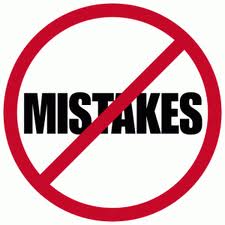Too Much Revenue for ONE Customer?
 This is another real world story of the interesting situations that we find when brokering deals.
This is another real world story of the interesting situations that we find when brokering deals.
We had a great business with great cash flow and great products. On the surface, everything looked like this was a business that could be sold at 3 or 4 times cash flow. When we dug deeper, we found that there was one huge customer. Yes, the customer was profitable, but they made up two-thirds of the business revenue. That is challenge enough, but it got worse. The account manager for this major customer was a family member of the owner, and was being paid twice the market rate for their position.
The price of a business gets discounted for each of these situations separately, but when combined, it makes it almost impossible to get a deal done. In this situation, the person that would benefit the most and have the best chance for success, as a buyer, is the family member. But they are also the individual with the most leverage to influence business price.
What could the business owner have done to have a better chance at selling? The business owner needed to be making strategic changes at least 12 months before trying to sell. The first move would be to get a new account manager involved with the major customer to minimize the risk of the relationship with the family member. In addition, it would be a good idea to have an employment agreement in place with the new account manager that includes a non-compete. The harder thing is to expand the business so that one customer doesn’t represent so much of the revenue stream. Not easy, but this can be done.
If everything can be fixed except for the customer concentration, you could probably sell, but be prepared to finance the buyer.


 We are proud to announce that we have expanded our core service offerings to include Business Valuation. It is not a requirement of our clients to have a valuation analysis performed. However, since it is not required, this tends to reduce the importance of this process in the mind of the seller. Business Valuation is a critical part of selling your business or preparing to sell. Don’t leave money on the table!
We are proud to announce that we have expanded our core service offerings to include Business Valuation. It is not a requirement of our clients to have a valuation analysis performed. However, since it is not required, this tends to reduce the importance of this process in the mind of the seller. Business Valuation is a critical part of selling your business or preparing to sell. Don’t leave money on the table! When you sell a home, your realtor walks through your house, takes some pictures and lists your property on MLS. They determine the starting list price based on features of your home and comparable in your area. This process usually takes a few days. Selling your business is NOTHING LIKE THIS.
When you sell a home, your realtor walks through your house, takes some pictures and lists your property on MLS. They determine the starting list price based on features of your home and comparable in your area. This process usually takes a few days. Selling your business is NOTHING LIKE THIS. by Monday?” This is no joke, and honestly, this is not a business we chose to represent.
by Monday?” This is no joke, and honestly, this is not a business we chose to represent. Business buyers want to replace an income, have more control over their destiny, and increase their wealth opportunities, but may not know where to start. Searching for the right business can take months or even years using the old standard method of reviewing whatever comes on the market at the time it comes on the market. Sometimes that means making do with what is available – “compromising”.
Business buyers want to replace an income, have more control over their destiny, and increase their wealth opportunities, but may not know where to start. Searching for the right business can take months or even years using the old standard method of reviewing whatever comes on the market at the time it comes on the market. Sometimes that means making do with what is available – “compromising”. If you own your own business, odds are that your business is your largest asset. Do you know what it is worth? Really know? If you have talked with your financial planner in the last few years, they are probably asking the same question so that they can get a true picture of when you will be able to retire.
If you own your own business, odds are that your business is your largest asset. Do you know what it is worth? Really know? If you have talked with your financial planner in the last few years, they are probably asking the same question so that they can get a true picture of when you will be able to retire. Big customers always seem to be a big carrot for business owners. It’s hard to blame them when the big orders come in. With all the excitement of the big order, the owner with extreme customer service focus makes the customer very happy. Over time, these large customers may drive down the gross margin of the business because of their power and influence, and because they know the business owner needs them. At first it seems ok. As time goes on, the big customer gets most of the owner’s attention and most of the company’s resources.
Big customers always seem to be a big carrot for business owners. It’s hard to blame them when the big orders come in. With all the excitement of the big order, the owner with extreme customer service focus makes the customer very happy. Over time, these large customers may drive down the gross margin of the business because of their power and influence, and because they know the business owner needs them. At first it seems ok. As time goes on, the big customer gets most of the owner’s attention and most of the company’s resources.


